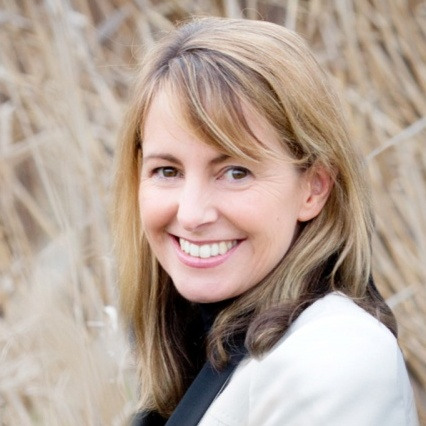It is nearly a year since Emma Anglesey and I attended the VicHealth/Obesity Policy Coalition #rethinksugarydrink update, May 2017. The incredible initiatives they have introduced to help reduce sugar consumption, the educational resources developed for professionals and for the public and the sustainable outcomes being achieved in Victoria, are truly inspiring.
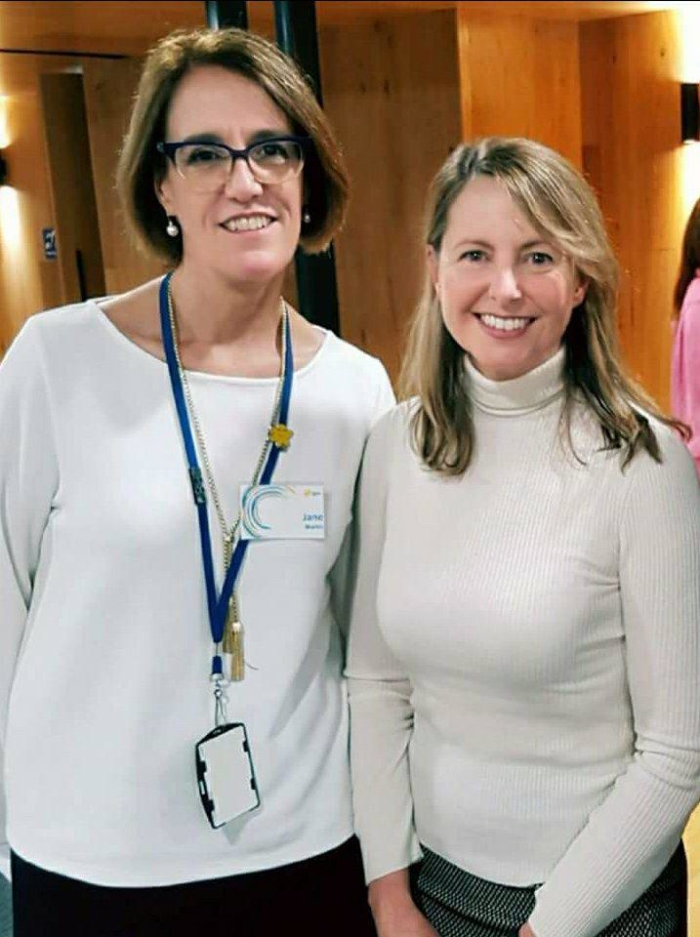
It was great catching up with Jane Martin from the Obesity Policy Coalition, again. Her passion for our community's health and her tireless work highlighting sugar and marketing by the food industry gave me the idea to approach my local council to share the success of the #rethinksugarydrink campaign and why we need to consider this approach in Tasmania.
As a quick aside, I note that Jane is part of the upcoming ABC 4 Corners program with Gary; Tipping the scales: Sugar, politics and what’s making us fat airing Monday April 30 8.30pm. Don't miss it :-)
Presenting #rethinksugarydrink to the Launceston City Council June 2017
I was excited to have an opportunity to present to the Launceston City Council in June. I spoke about the measures that 3 Local Councils, the Victorian YMCA, and Alfred Health had successfully implemented to reduce sugary drinks while keeping the public happy and not losing profit.
I truly appreciated the Councillors time, their thoughtful consideration and the questions asked at the end.
Unfortunately, Launceston can't be the first anymore, but let's not be the last to implement strategies to help our community reduce sugar.
The Examiner Newspaper wrote about my presentation to the Launceston City Council here.
Making Healthy Choices the Easy Choices
Some Background
After introducing myself to the Launceston City Council members in attendance I proceeded to explain the importance of preventative health education and the role that nutrition and lifestyle contribute to our health outcomes.
The reality is, that Obesity, Type 2 Diabetes and Cardiovascular Disease are not only a major cause of deaths in Tasmania, they are an even bigger cause of disability in our community with huge personal, social and economic ramifications.
My message to the council was that all three are preventable. In fact, Type 2 Diabetes is not only preventable but it doesn't need to be considered a chronic progressive disease, as currently defined by Diabetes Associations world-wide.
Understanding 'food as medicine' and the role sugar and processed carbohydrates play in metabolic disease enables people, from all socioeconomic regions, to take back control of their health. It potentially allows people to reduce medications because they aren't chasing roller-coaster blood glucose levels all day every day and some people find they can come off diabetes medications completely. Reducing sugar and processed carbohydrates in the diet also has the ability to stop progression of the complications of Type 2 Diabetes and for some, even a reversal of their condition.
Interestingly, one of the main issues the #rethinksugarydrink campaign encountered was the concern for lost revenue from businesses and not-for-profits that sell a significant amount of sugary drinks in the day to day running of their facilities.
Businesses and not-for-profits were surprised to find that "making healthy choices the easy choices" showed actual sales in kiosks and cafe's had not diminished across any of the recreational and health facilities trialed as part of the #rethinksugarydrink campaign in Victoria. 'Red' drinks had simply been swapped for 'amber' and 'green' ones. So it really has been a win/win situation.
Why does Tasmania need to think about sugar consumption?
“Tasmanians currently experience some of the worst population health outcomes in the country, with high rates of chronic disease and health risk factors like smoking, obesity, poor nutrition, low physical activity levels, and risky alcohol consumption” Reference: www.dhhs.tas.gov.au 2016
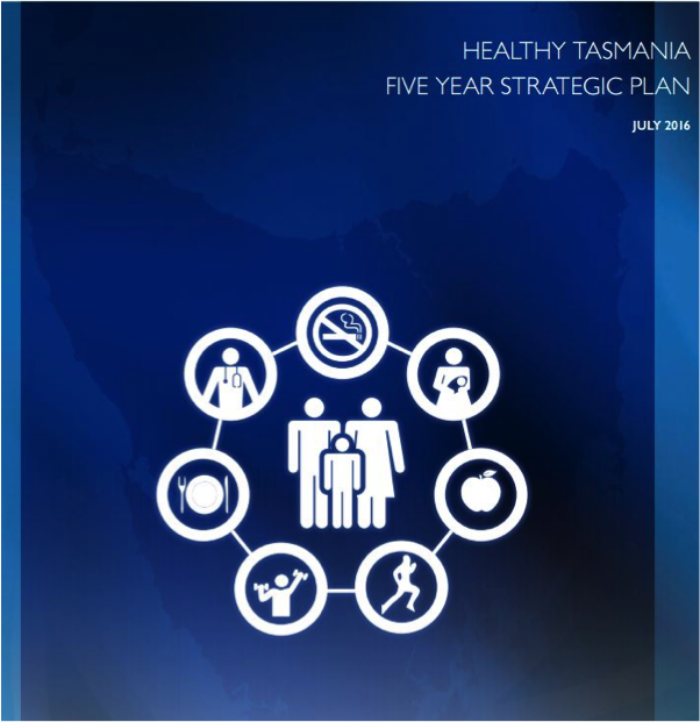
The Healthy Tasmania five year strategic plan is ambitious, but could be achieved if we start making some big changes, now. Discussion around some of the health issues that many Tasmanian's are currently facing will be followed by some potential solutions for the Launceston City Council's consideration.
The National Health survey 2014-15 found that a staggering 67.5% of our Tasmanian adult population were overweight or obese.
•35.2% of persons aged 18 years or over were overweight - 137,600 people
•32.3% of persons aged 18 years and over were obese - 126,400 people
And it isn’t just adults that are struggling with obesity - 31.2% of children in Tasmania were also classified as overweight or obese.
•23.1% of Tasmanian children aged 2-17 years were overweight - 23,400 children
•8.1% of Tasmanian children aged 2-17 years were obese – 8,200 children
Obesity is one of the main underlying risk factors for metabolic syndrome. Obesity increases the risk of developing a variety of conditions, including insulin resistance, type 2 diabetes, hypertension, cardiovascular disease and Non-Alcoholic Fatty Liver Disease, not just in adults but in kids, too!
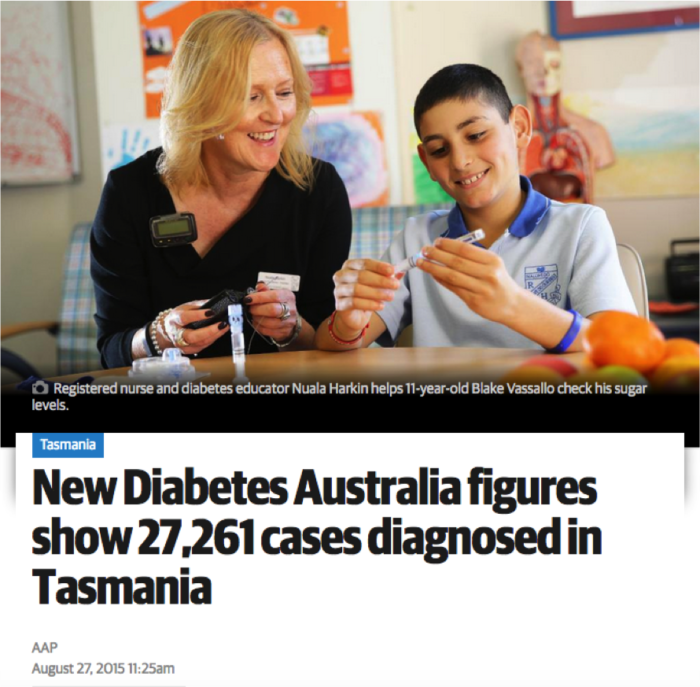
In Tasmania there were 27,261 people diagnosed with diabetes and another 40,000 people with pre Diabetes or undiagnosed Diabetes, according to figures released by Diabetes Australia in 2015. 10% have Type 1 diabetes, 5% Gestational diabetes and 85% have Type 2 diabetes, affecting younger and younger people in our community every year.
The tragedy is that Type 2 diabetes is completely avoidable with lifestyle changes, most importantly, diet.
Advertising to reduce sugar consumption around the world.
As the awareness that sugar is contributing to poor health outcomes countries around the world are starting to run specific advertising campaigns designed to educate and/or to discourage people from eating so much sugar and junk food.

Is sugar the new tobacco? The Diabetes Association of Sri Lanka is one of many associations worldwide that believes so. In their advertising campaign sugar addiction is compared to Tobacco addiction to try to address the health issues Sri Lanka is currently facing.
tobacco and sugar are highly addictive, and somewhere in the world - both of these substances take a life every 6 seconds …
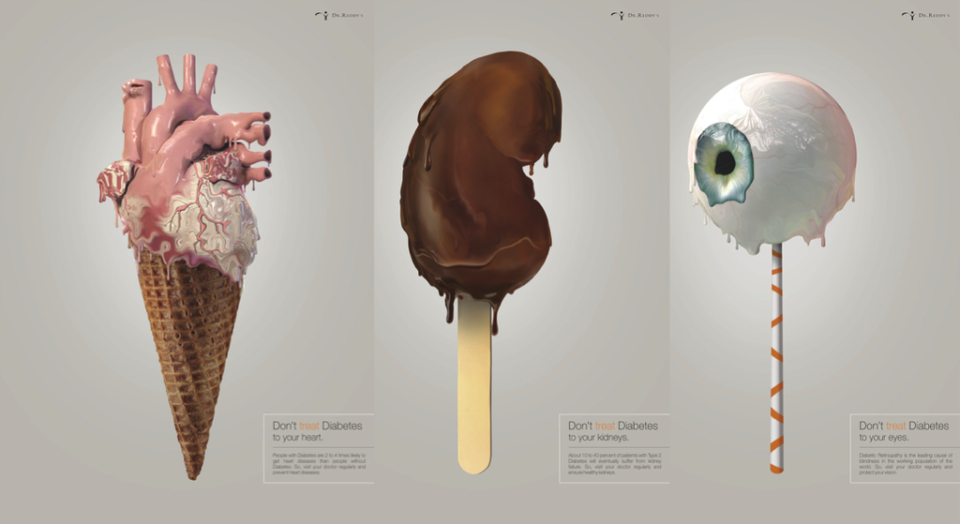
Dr Reddy's “Don’t treat Diabetes” is an Indian Campaign using sugary treats such as icecream and lollies to visually represent the body parts most affected by the complications of diabetes.
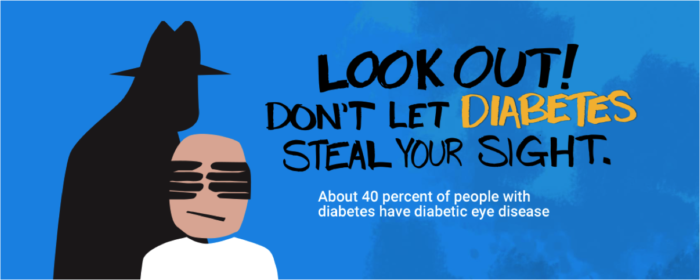
An advertising group in New York take a different approach with their “Don’t let diabetes steal your sight” campaign.
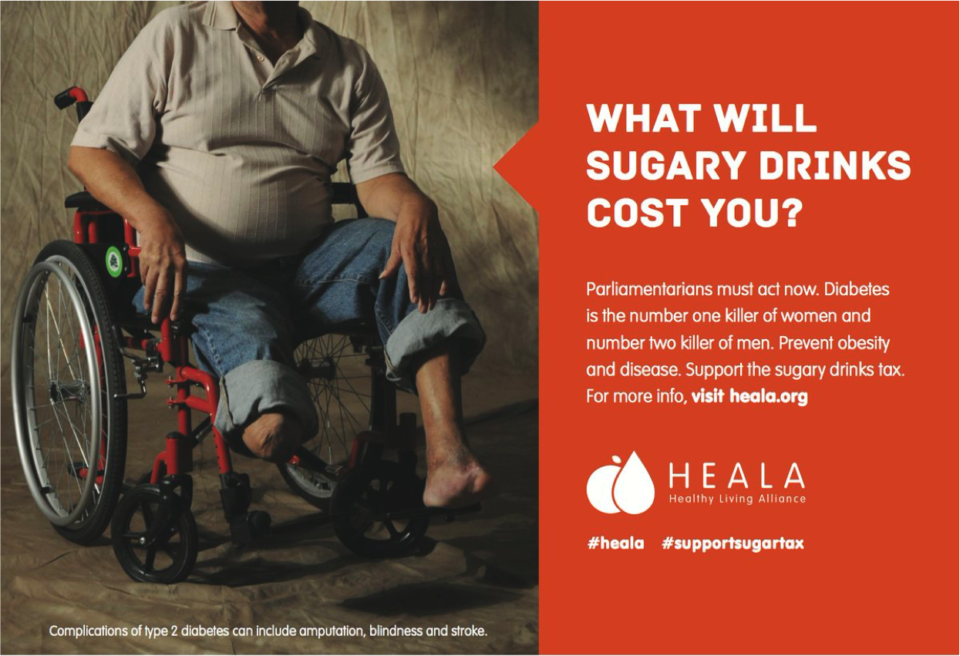
Professor Thifheli Luvhengo, Chief of Surgery, and spokesperson for HEALA (Healthy Living Alliance) in South Africa, describes the epidemic he sees every day as “a factory making diabetic children” - referring to the sugary drinks parents give to their kids priming them to become diabetic within 10 years.
"The reality is that Diabetes is not only a major cause of deaths worldwide, it is an even bigger cause of disability to our community which has huge personal, social and economic ramifications."
Sir Michael Hirst, past President of the International Diabetes Federation said in 2013, that the world had spent $548 billion (US) on diabetes health care alone.
We can't afford to keep bandaiding sick-care.

Revised recommendations for sugar consumption by the World Health Organisation
To try and tackle the tsunami of obesity and chronic disease the World Health Organisation have made revised recommendations on sugar consumption to try to improve health outcomes.
Adults & children over 2 years –
•Less than 6 teaspoons of added sugars per day
Children under 2 years -
•ZERO added sugars per day
How much sugar?
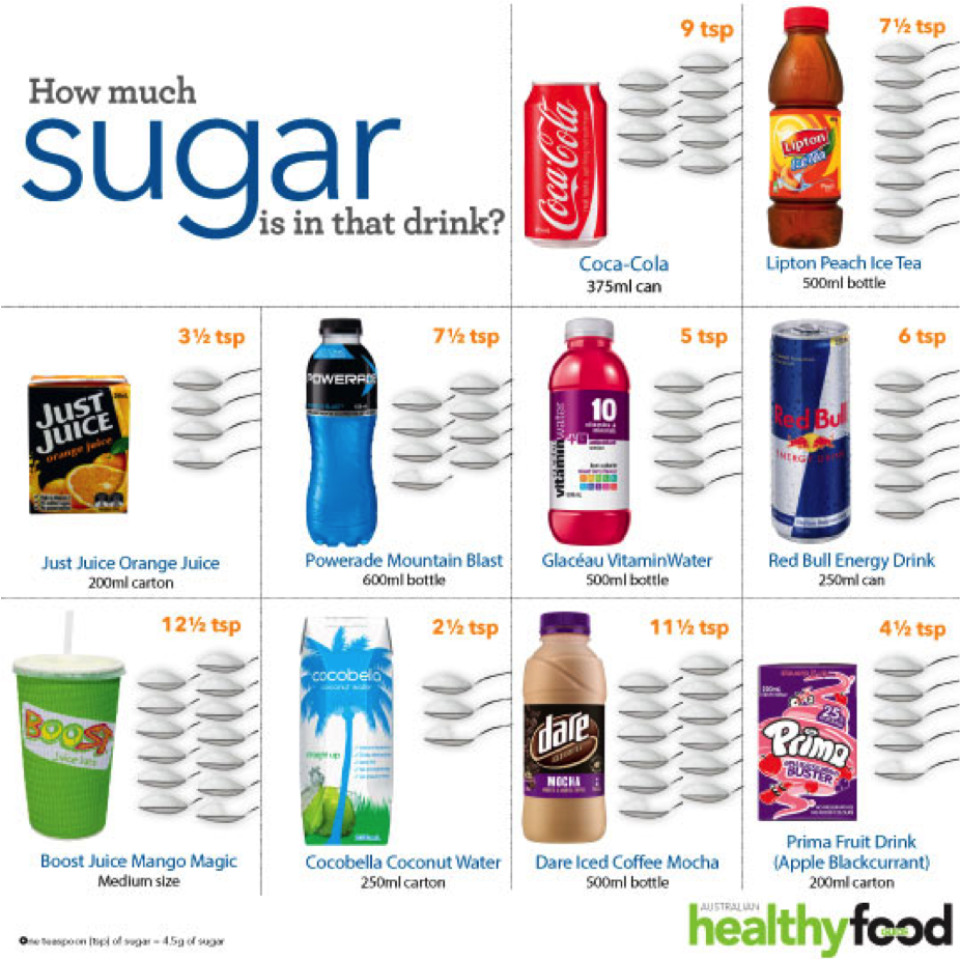
So where does the sugar in our diet come from? It isn’t just the teaspoon of sugar you add to your tea and coffee during the day, nor the spoonful you sprinkle on your breakfast cereal in the morning.
It isn’t only in obvious places like soft drinks either. A 375ml can of coke has 9 teaspoons of added sugar, but a medium size boost juice has even more... a total of 12 ½ added sugars. So much for a healthier choice!
In fact, there are 61 names for sugar that I am aware of! And food manufacturers can call them different names on the same nutrition information panel just to confuse the consumer …
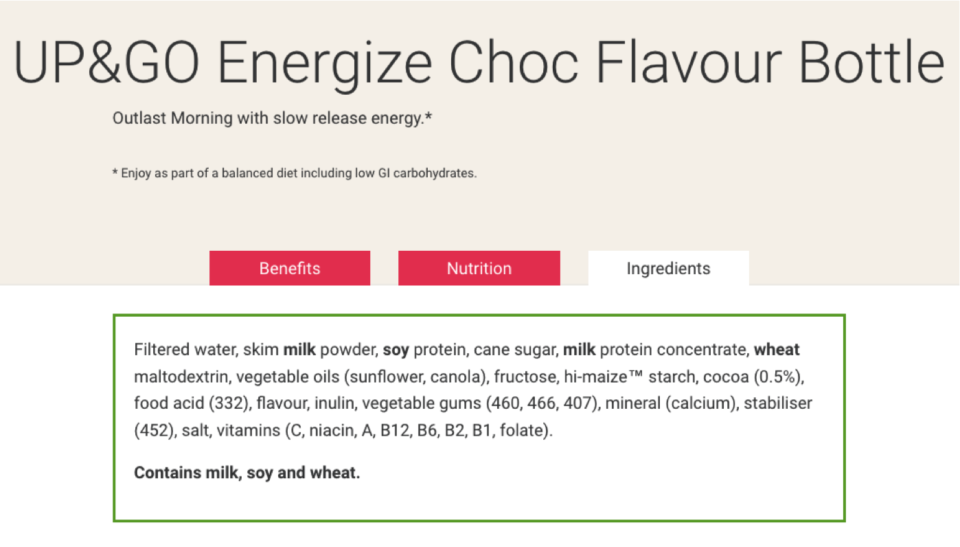
I am not really sure how Sanitarium’s latest Up & Go ‘Energize’ can claim people should “enjoy as part of a balanced diet” when the ingredients include cane sugar, maltdextrin, fructose and hi-maize starch.
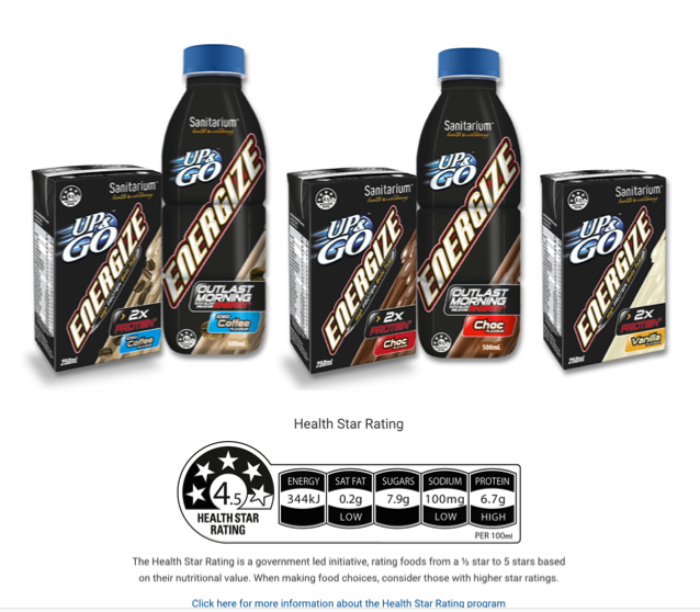
Sanitarium’s Up and Go Energise Liquid Breakfast 500ml size contains 39.5g of added sugar. There are 4 grams of sugar in 1 teaspoon. That means this 500ml serve contains 10 teaspoons of added sugar, and that is just for breakfast! 4 teaspoons more than the World Health Organisation recommends for an entire day …
What initiatives are being introduced to reduce sugar intake and encourage healthier food choices?
While we wait for Government policy changes to be introduced in Tasmania … let’s take a look at what is happening locally, nationally and internationally. There are some amazing private health campaigns and Local Council initiatives that have already been introduced in Australia and Tasmania often leads the way.
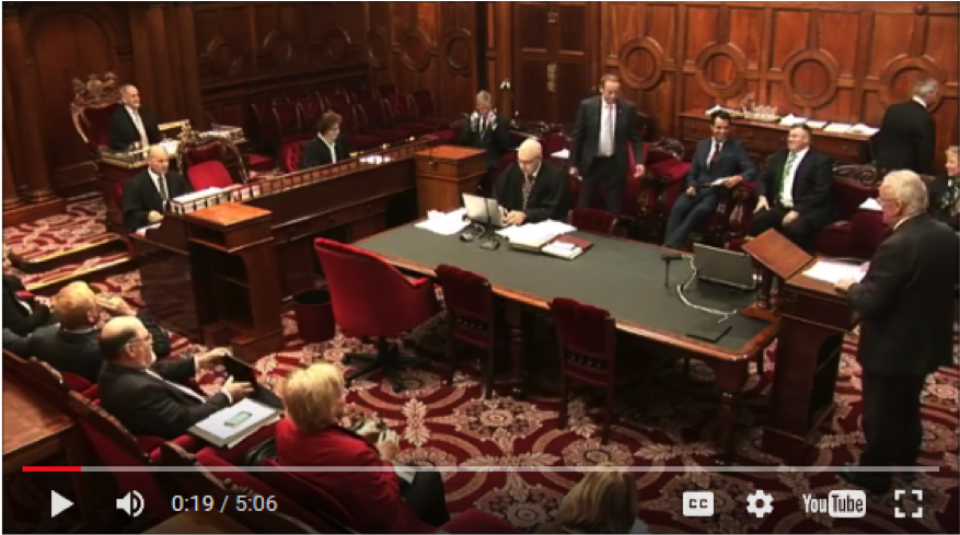
After speaking with Dr Gary Fettke in 2013, Kerry Finch MLC gave a special interest speech in the state's Upper House. They subsequently passed a motion calling for the State Government "to order a review of foods prepared and/or sold in hospitals, including canteens, kitchens and vending machines.
Tasmania could have been one of the leaders in this space.
Unfortunately, the motion to review sugar and junk foods in hospitals, while passed in the Upper House, appears to have been ignored by the Lower House as nothing came of it.
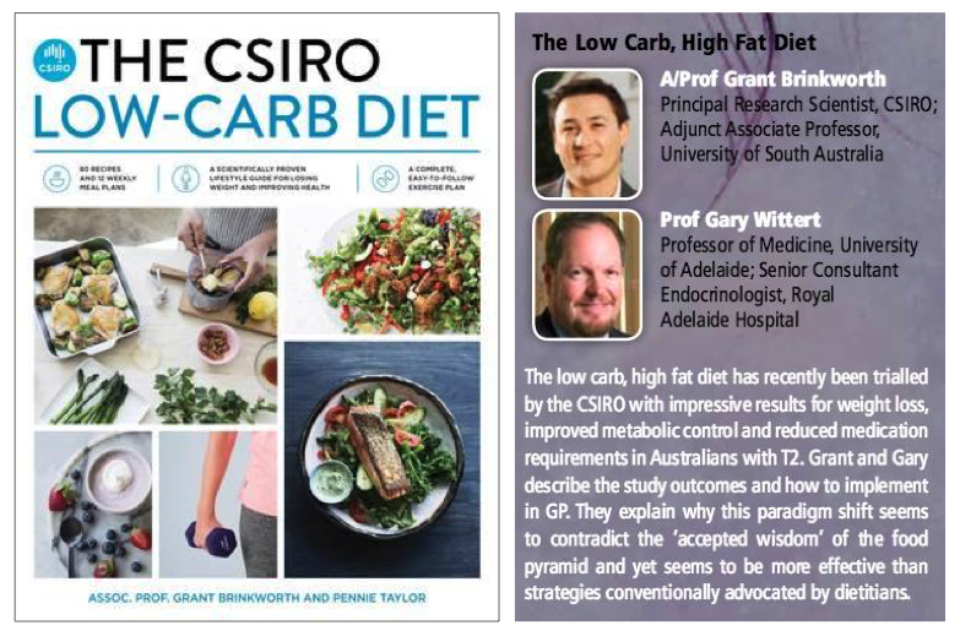
In 2016, the CSIRO published their Low Carb Diet cookbook. It went to the top of the best seller list in Australia. A/Prof Grant Brinkworth and Professor Gary Wittert also ran courses on implementing LCHF to GP’s around Australia with impressive results for weightloss, improved metabolic control and reduced medication requirements.
Australian initiatives to raise awareness about sugar
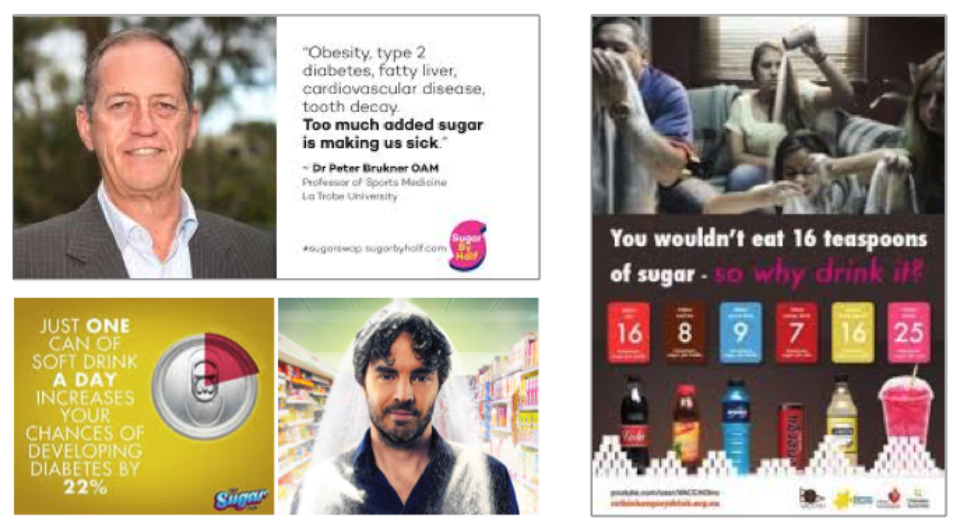
Dr Peter Brukner used to be the Doctor to the Australian Cricket team. In 2016 he created a not-for-profit called Sugar by Half claiming that "cutting our added sugar by half is the quickest, cheapest and most effective way of reducing chronic disease."
Damon Gameau actor/director has continued to promote That Sugar Film since 2015, and created a new public education program called 6 Spoons in June.
VicHealth has been involved with the Rethink Sugary Drink and LiveLighter campaigns over the last several years.
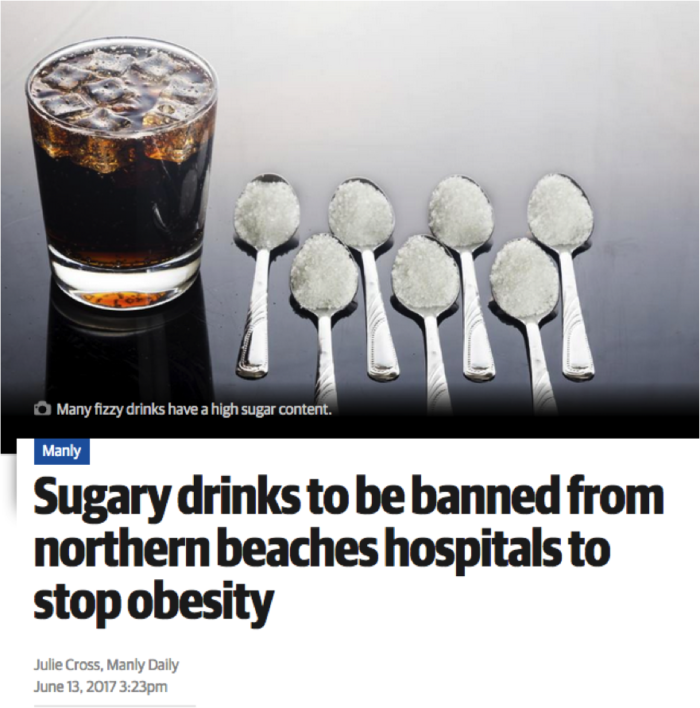
Hospitals and local Councils in Sydney are taking action on sugar, with the NSW Government announcing in June 2017 that it will be the first state in Australia to remove sugary drinks from its hospitals and health facilities in an effort to fight obesity.
Sugar-sweetened beverages will be phased out from all onsite cafes, staff kiosks, vending machines and catering services by December. The sugary drink restriction is part of NSW Health's new Healthy Choices in Health Facilities policy framework. What is Tasmania’s policy?
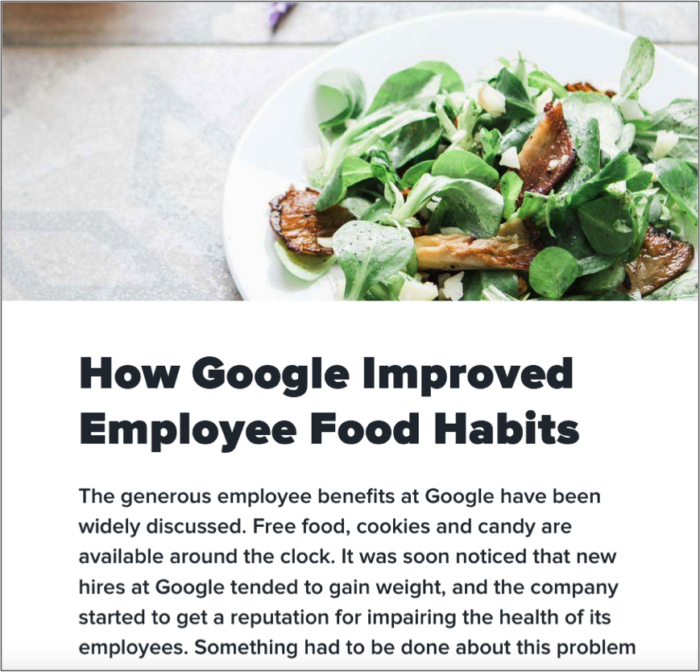
I love this story … "Free food, cookies and candy being available around the clock sounded like an awesome workplace culture, till Google began to get a reputation for impairing the health of its employees."
Google began to make some simple observations about the placement of food and how it affected their employees dietary habits.
Google noted that if loose lollies/chocolates and/or biscuits were placed right beside the coffee machines, many took something sweet in passing when they got their coffee. Simply moving these items four metres away resulted in a calorie reduction that corresponded to one-half kilo per employee per year!
Tasmania knows how to lead the way and implement change to improve our community’s health and our environment
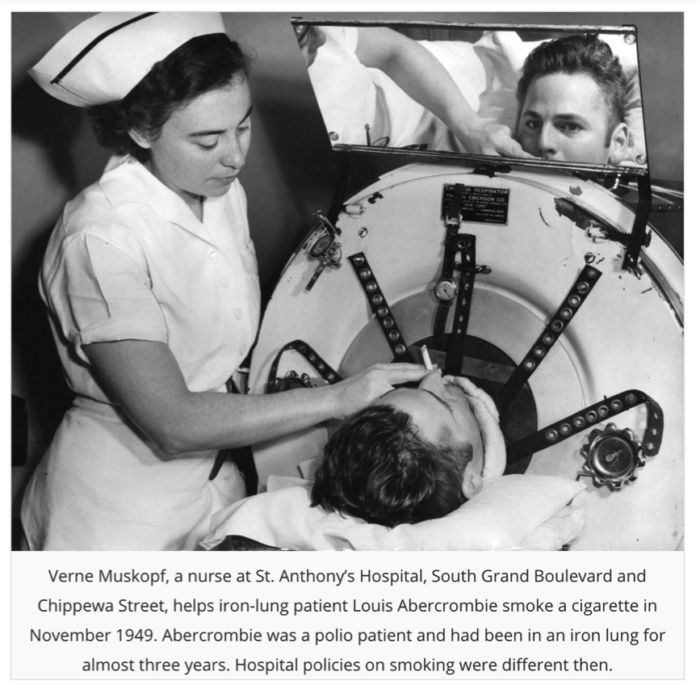
Tasmania was the first Australian state to introduce a total indoor smoking ban in January 2006.
Hospitals should continue to lead the way for people to make healthy choices the easy choices. There is enough information around now, about the harms of sugar and its comparison to smoking that make images like this - a patient being assisted to smoke by his nurse while lying in an iron lung - almost impossible to imagine.
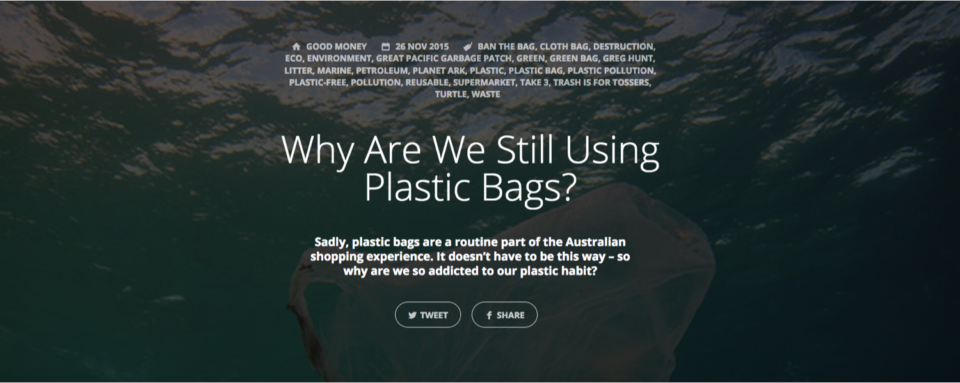
In 2002 Coles Bay, on Tasmania's East Coast, was the first Australian Town to ban single use plastic checkout bags. Tasmania was also the first State to stop free plastic bags -a brilliant community initiative to help reduce plastic pollution. The rest of Australia is still questioning why plastic bags are part of the shopping experience and demanding change. My point… we don’t have to wait for the rest of Australia to make important policies here in Tasmania.
The Rethink Sugary Drink Campaign
In Victoria The Rethink Sugary Drink Campaign is currently a partnership between 13 health and community organisations.
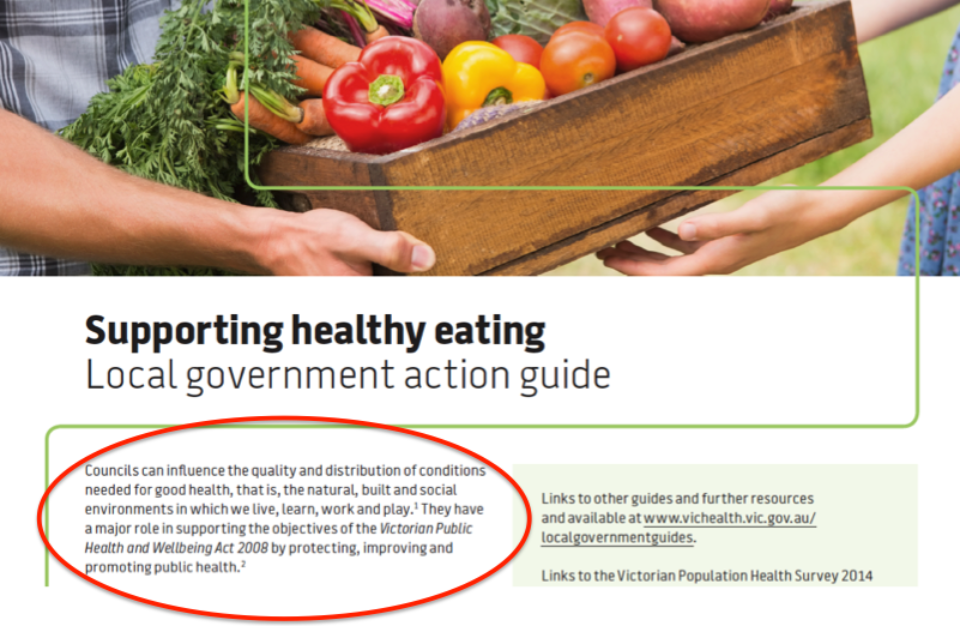
At least 3 local governments that I am aware of in Victoria are supporting healthy eating campaigns. Councils have an incredible position to influence policy and change.
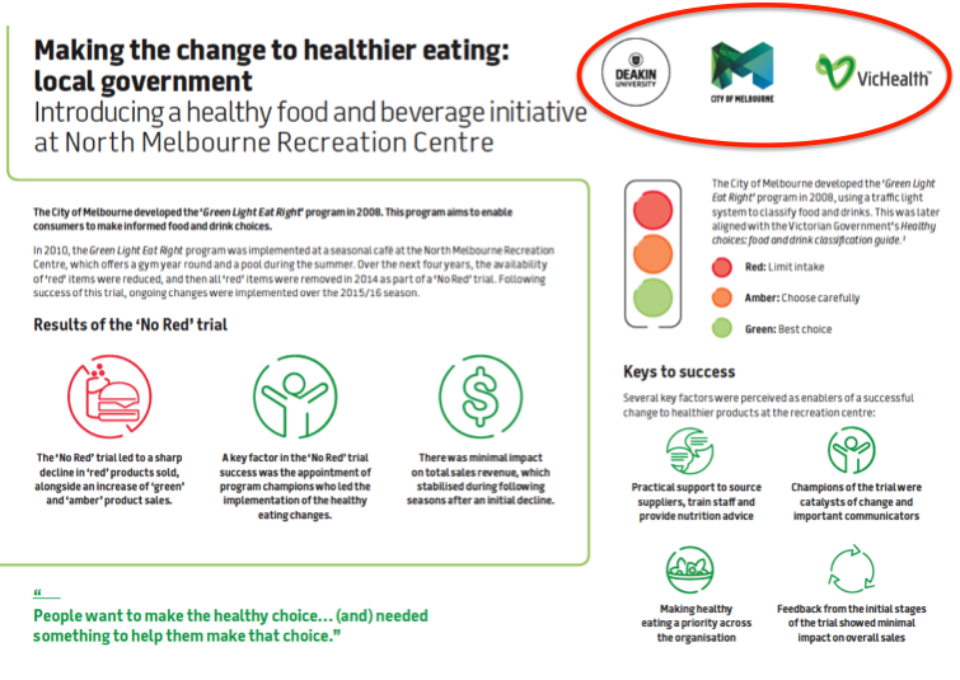
The City of Melbourne was the first to develop the Green Light Eat Right program in 2008. By 2010 the program introduced a healthy food and beverage initiative at the North Melbourne Recreation Centre. Over the next 4 years the availability of red items were gradually reduced until 2014 when all red items were removed.
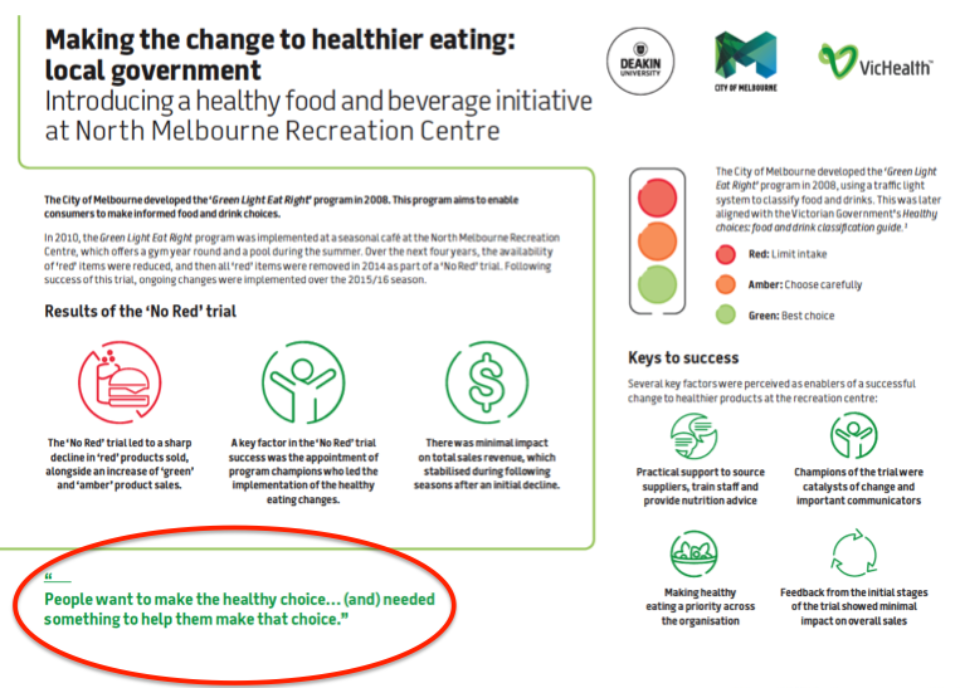
People want to make the healthy choice … (and) needed something to help them make that choice.”
Keys to the success of the program were practical support to source suppliers, training staff and providing appropriate nutrition advice. The champions of the trial were the catalysts of change, making healthy eating a priority across the organisation.
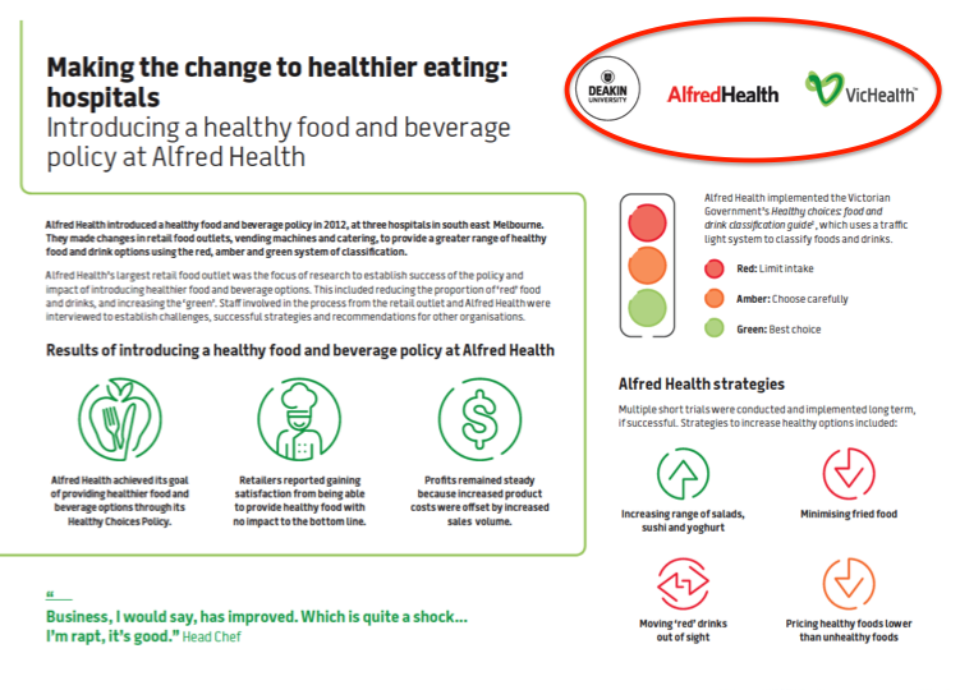
Alfred Health introduced their new policy in 2012 in conjunction with VicHealth and Deakin university. Multiple short trials were conducted and then were implemented long term, if successful. Strategies included increasing the range of salads, minimising fried food, moving red drinks out of sight, and pricing healthy foods lower than unhealthy foods.
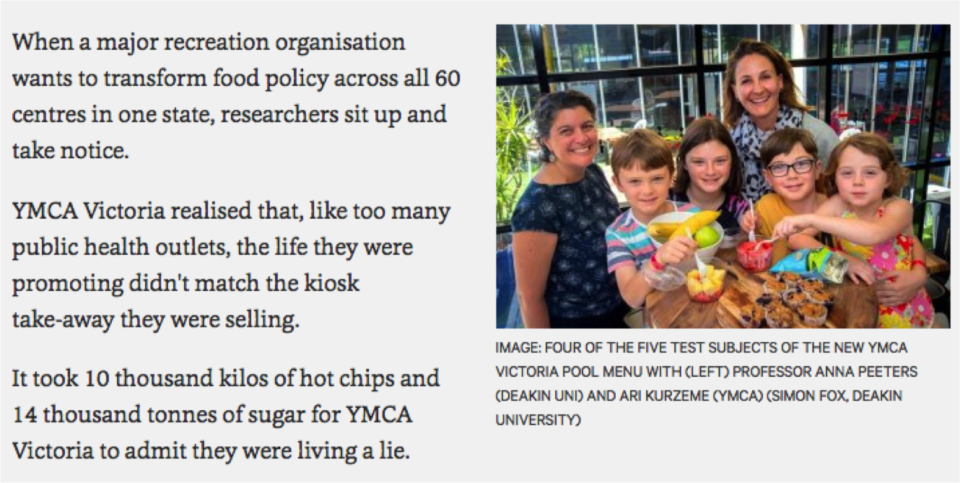
It took 10,000kgs of hot chips and 14,000 tonnes of sugar in soft drinks sales for YMCA Victoria to admit they were living a lie. Like too many other public health outlets, the healthy lifestyle they were promoting didn’t match the kiosk take-away foods and beverages they were selling.
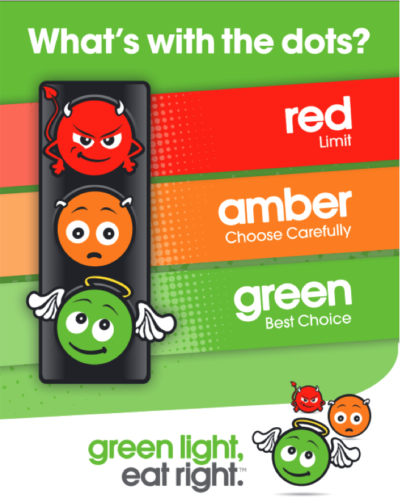
In 2014, YMCA Victoria introduced a healthy food and beverages policy to be implemented over 3 years in kiosks, cafes and catering services to the 70 aquatic and recreation services they managed. The YMCA Victoria’s policy is based on the Victorian Government Healthy Choices, food and drink guide.
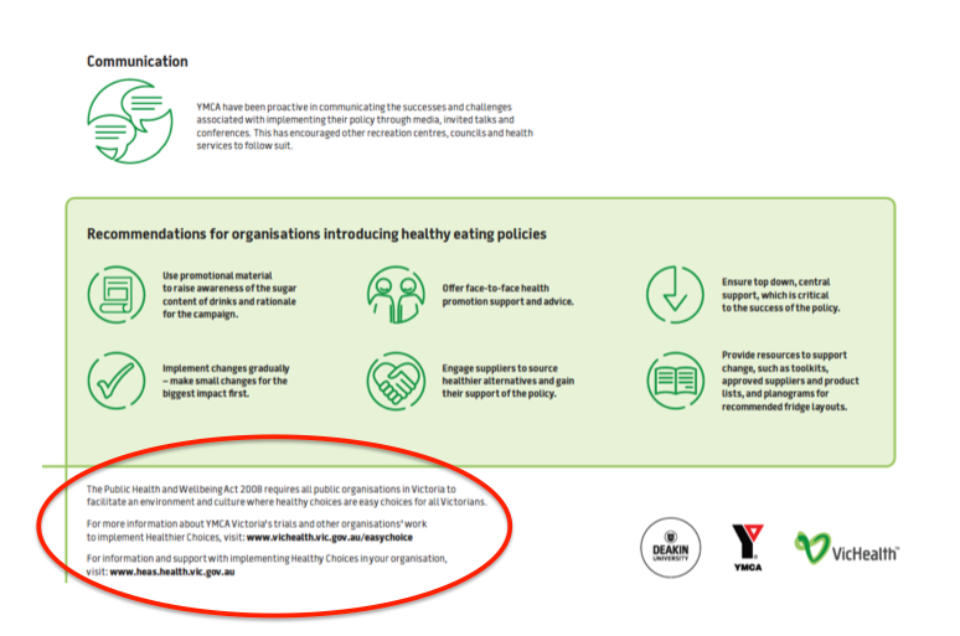
They leveraged off the Public Health and Wellbeing Act 2008 which requires all public organisations to facilitate an environment and culture where ‘healthy choices are easy choices’ for all Victorians. The YMCA have been proactive in communicating their successes and the challenges associated with implementing the new policy and have encouraged other recreation centres, councils and health services to follow suit.
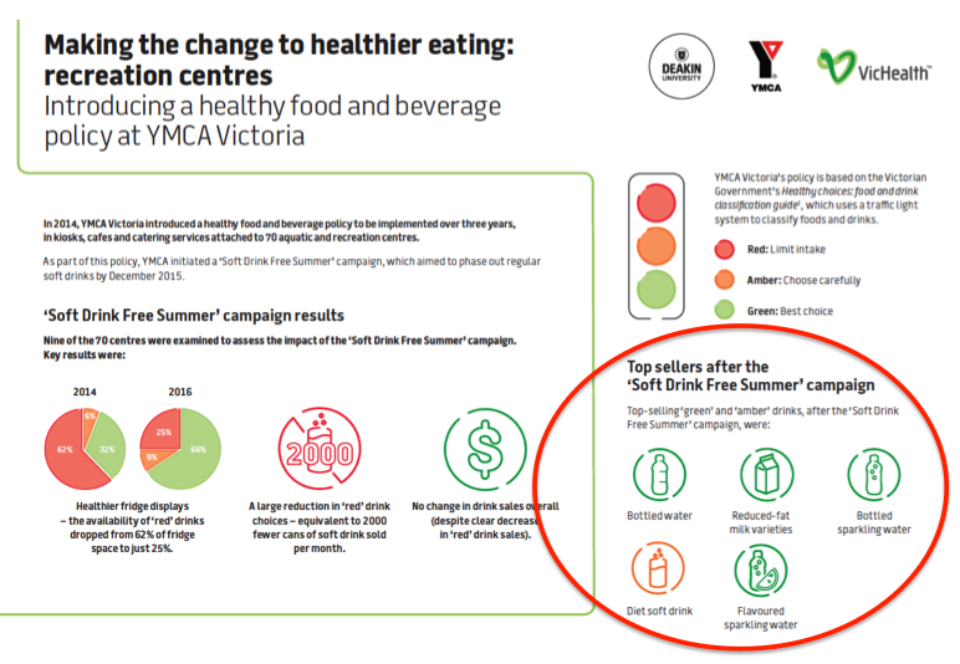
As part of the policy, YMCA initiated a “Soft Drink Free Summer” Campaign which aimed to phase out regular soft drinks by December 2015. The availability of ‘RED’ drinks dropped from 62% of fridge space to just 25% of Fridge Space.
While 2000 fewer cans of sugary drinks were sold each month over summer, importantly there was no change in the overall drinks sales.
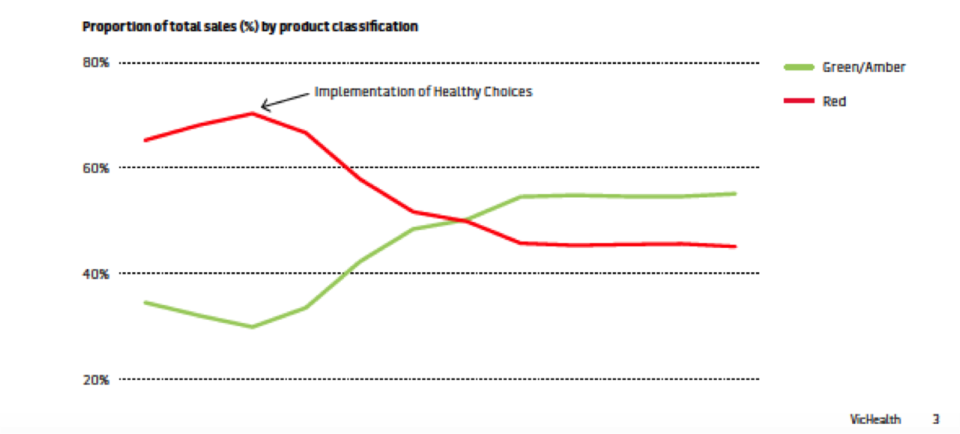
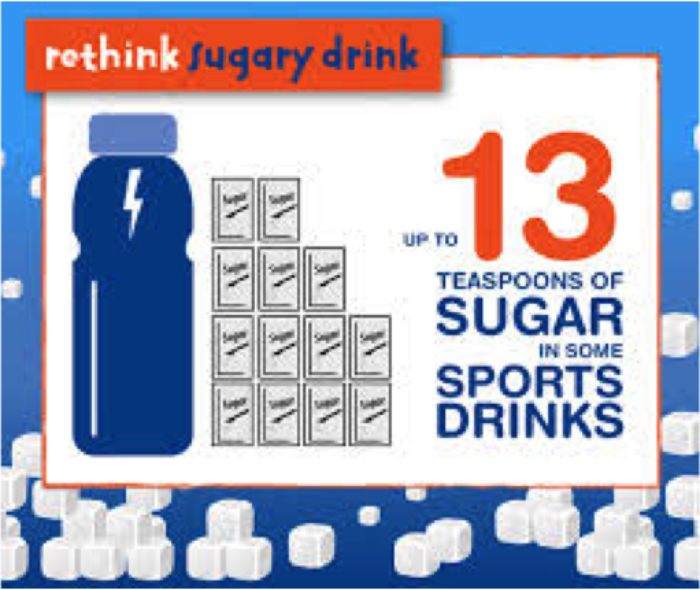
Professor Anna Peeters, from Deakin University said: “This innovative policy had its intended effect of reducing purchase of unhealthy drinks, without negatively impacting overall drinks sales which is important to support the large-scale expansion of such policies.”
The YMCA is now focusing on removing sugar-containing sports drinks and working towards reducing the amount of sugar confectionary.

There is a growing demand from the Victorian community for healthier options and strong support from statewide organisations such as the Department of Health and Human Services, Cancer Council Victoria, Heart Foundation, YMCA Victoria, Nutrition Australia, Dental Health Services Victoria and VicHealth to implement sugary drink free and healthier events.
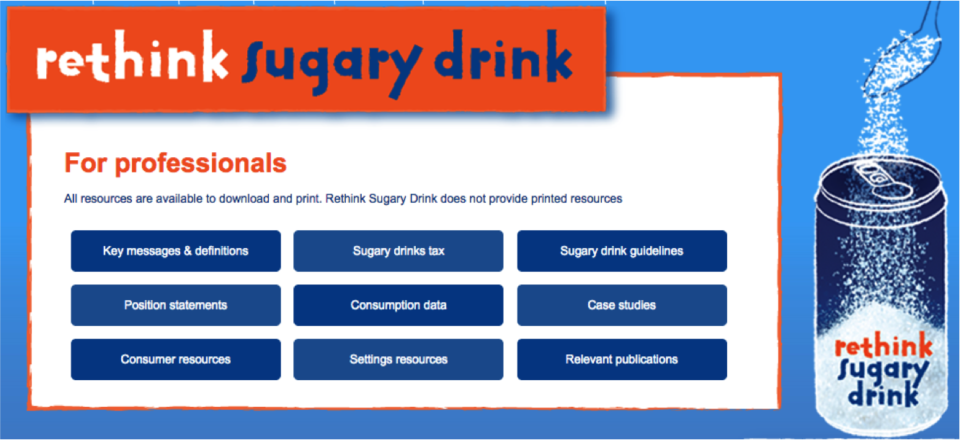
Rethinking sugary drink events can be engaging and fun and provide the healthy options that many people are looking for. Please feel free to download the Toolkit here.
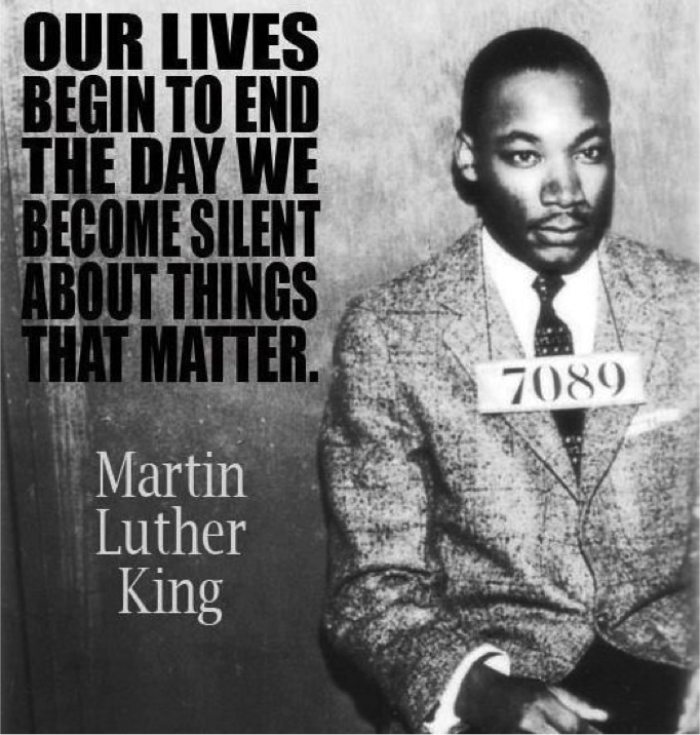
There are more resources for local Councils available to download and print from the #rethinksugarydrink ‘for professionals’ page. We don’t need to reinvent the wheel!
Gary may be 'silenced' from talking to his patients, and the wider community, about reducing sugar to improve health outcomes, but AHPRA has no jurisdiction over me.
There are some brave people in this world who refuse to be silent about things that matter. Gary and I believe Tasmania’s health is one of them.
